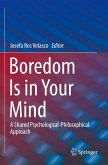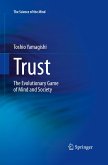Brothers is most concerned with the realm of trust that serves as the "glue" of self-experience, a realm she calls self-trust - the hope or wishful expectation of obtaining and providing the selfobject experiences necessary for psychological well-being. Mature self-trust comes from repeated childhood experiences of "falling backwards" and being caught by reliable adults. Straddling the conscious world of subjective reality and the unconscious world of selfobject fantasies, self-trust acts as a psychic adhesive for one's sense of self. Betrayal of self-trust shatters selfobject fantasies and results in the dissociative alteration of subjective reality associated with traumas. Brothers asserts that such betrayals are found at the heart of all disorders of self-experience. This perspective sheds fresh light on many familiar psychoanalytic concepts. For example, the Freudian notion of a repetition compulsion is reinterpreted in terms of efforts to rescript trauma scenarios which lead to tragic but inadvertent retraumatizations. Paranoid experience is shown to originate in disordered trust, a view that retains the benefits of Freud's original trauma model of pathogenesis. Clinical studies as well as in-depth treatment cases illustrate the powerful clinical advantages of a self-trust perspective. They demonstrate that from the first encounter between patient and therapist to the last moment of their final session, self-trust and its betrayal are at the center of the therapeutic relationship. Falling Backwards also examines the self trust betrayals that haunted Freud's life in an attempt to understand the relative neglect of trust in classical psychoanalysis. Freud's relationships with Fliess, Jung, and Adler, as well as certain of his theories, are shown to reflect the dissociative alteration of his subjective reality and to represent efforts on his part to rescript childhood trauma scenarios.
Hinweis: Dieser Artikel kann nur an eine deutsche Lieferadresse ausgeliefert werden.
Hinweis: Dieser Artikel kann nur an eine deutsche Lieferadresse ausgeliefert werden.








